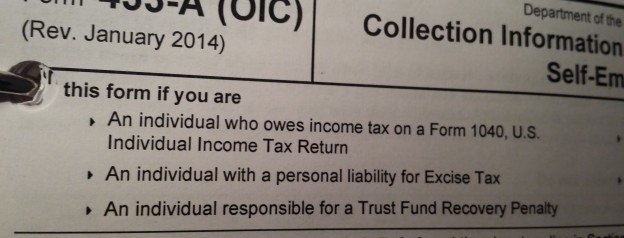Offer in compromise and income producing assets

Offer In Compromise TIP – Equity in income producing assets will generally not be included in the reasonable collection potential of a viable, ongoing business.
We see many offer in compromise analyses that mistakenly include the equity in business assets and thus, taxpayers may end up paying a much higher offer amount or worse, not qualify for an offer in compromise at all. A good tax attorney will point this out to the IRS and make the proper arguments during the offer analysis, resulting in money saved for the taxpayer. The income producing asset exclusion is an important tool for taxpayers to exclude either streams of income or equity in assets.
When investigating the reasonable collection potential for an offer in compromise that includes business assets, an analysis is necessary to determine if certain assets are essential for the production of income. When it has been identified that an asset or a portion of an asset is necessary for the production of income, it is appropriate to adjust the income or expense calculation for that taxpayer to account for the loss of income stream if the asset was either liquidated or used as collateral to secure a loan to fund the offer.
One such asset which is often overlooked and is part of a trade or business is a rental property. The internal revenue code defines renting property as a real estate trade or business. The property is depreciated during its income production and the property is clearly essential for the production of that income stream. We’ve seen analysis where the IRS includes both the income stream of the rental property as well as the equity in the rental property. A taxpayer should insist that this analysis is flawed. It does not represent the reasonable collection potential of the taxpayer. If the IRS were to liquidate the asset and apply proceeds against back taxes, the future revenue stream would stop.
Part of the reason why both the equity and the assets are mistakenly included in the analysis is because of the way the 433-A (OIC) and 433-B (OIC) is structured. For example, the Form 433-A (OIC) asks for equity in all assets, but it also asks for income from all sources including rental income. The form then has the taxpayer add up all the equity in all assets in Box 1. It subsequently tells the taxpayer to figure the future remaining income in either Box 6 or Box 7, taking into account the rental income, but it never inquires or asks if any of the assets with equity are essential for the production of income in a viable ongoing business.
Unwitting taxpayers may then miscalculate their own reasonable collection potential or offer amount to their detriment. The IRS will not make arguments for the taxpayer; the Internal Revenue Manual and Internal Revenue Code sections are public and the taxpayer must know of them and point to them during an offer. The income producing asset analysis is just one type of exclusion that is not apparent on the Form 433s. There are other exclusions that the taxpayer must be aware of which are specifically enumerated in the Internal Revenue Manual Offer In Compromise Financial Analysis Section.
It takes a taxpayer who is willing to do some research or an experienced and knowledgeable tax professional to advocate these points during an offer in compromise. Often, it takes a vast knowledge not only of the Internal Revenue Manual, but also the Internal Revenue Code to properly evaluate an offer.
At Abajian Law, only a tax attorney will be working your case from the minute we pick up the phone. We have had many offers accepted that had previously been rejected due to poor work by other “tax professionals”. Let us advise you on your prospective offer in compromise or review your rejected offer in compromise or determination today.
The IRS Fresh Start program is a generous opportunity the federal government has given to taxpayers, but keep in mind that requesting an offer in compromise, appealing a rejected offer in compromise, or petitioning the tax court upon receiving a determination to reject an offer in compromise will stop the statute of limitations on collection. Therefore, it’s vital to do the correct analysis up front and not waste time stopping the statute of limitations or money pursuing an ineffective and useless offer.





